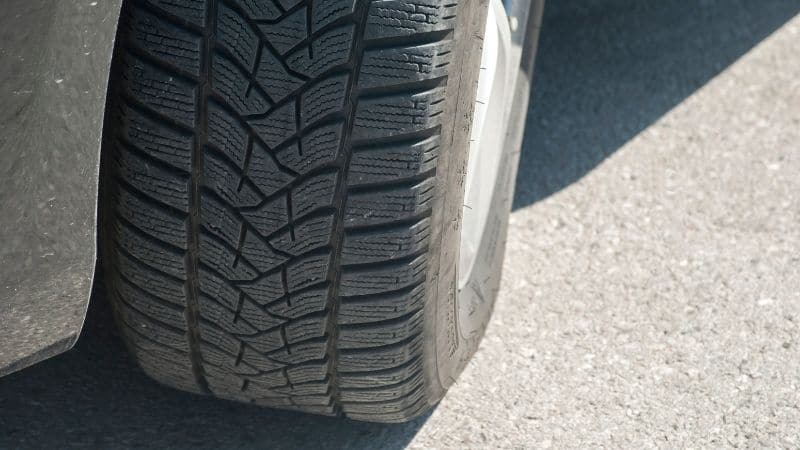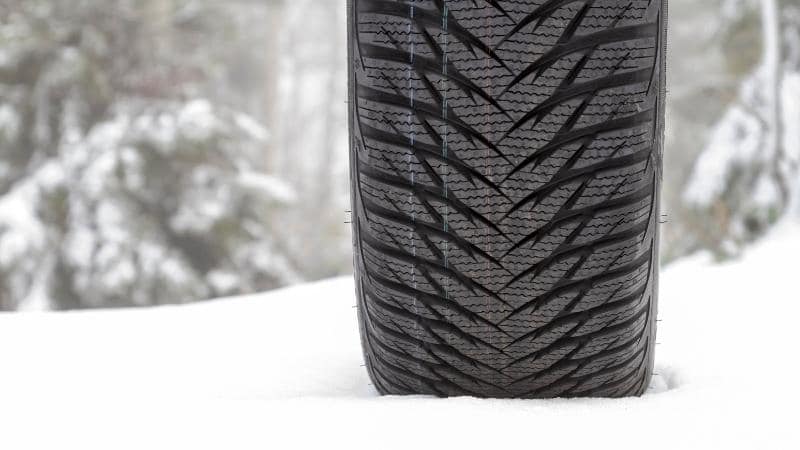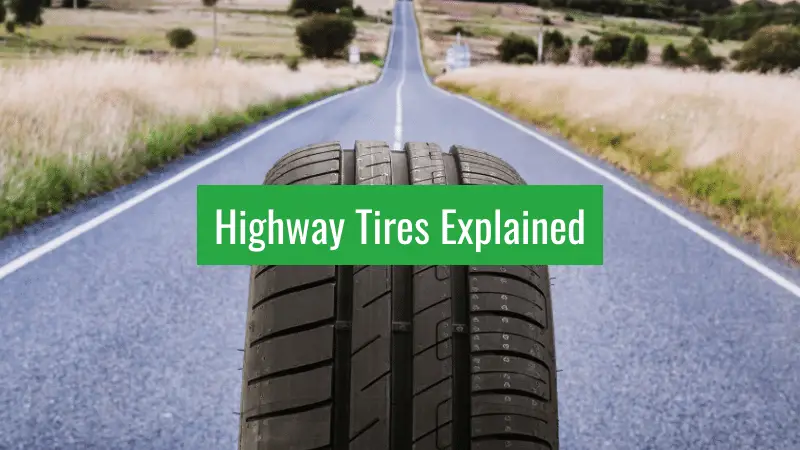When it comes to selecting the right tires for your vehicle, understanding the differences between tire types is essential.
If you primarily drive on highways and paved roads, highway tires might be the best option for your needs. Designed to provide optimal performance, smooth ride, and increased fuel efficiency, highway tires are specifically crafted to cater to highway and pavement driving.
Unlike all-terrain tires, which focus on providing traction off-road, highway tires offer a well-refined driving experience on paved surfaces. You can expect minimal road noise, even wear, and predictable handling, allowing you to enjoy a comfortable ride even during long-distance trips.
As your primary goal is to ensure a smooth and safe ride on highways, investing in highway tires is a decision you won’t regret.
Keep in mind that while highway tires excel in their primary purpose, they are not designed for off-road performance. If your driving habits involve occasional off-road adventures or challenging terrains, you might want to consider other tire options.
However, for those who spend most of their time commuting on paved roads, highway tires remain the top choice for a smooth and fuel-efficient driving experience.
Highway Tires vs. Other Tire Types
Understanding the difference between highway tires and other tire types can help you determine which option is best suited for your driving needs.
In this section, we’ll provide a brief overview of how highway tires compare to all-season, all-terrain, mud-terrain, summer, and winter tires.
All-Season Tires

All-season tires are designed to provide adequate performance in a variety of weather conditions. They offer a balance between comfort, handling, fuel efficiency, and traction.
While highway tires excel in providing a smoother and quieter ride on the pavement, all-season tires can handle light off-road conditions and mildly inclement weather better than highway tires. However, they may not perform as well as other specialized tires in extreme conditions.
All-Terrain Tires
All-terrain tires offer a more aggressive tread pattern, providing better traction in off-road conditions such as mud, sand, and rocks.
While they may not be as quiet or as fuel-efficient as highway tires on paved roads, they provide the versatility needed for both on-road and off-road driving. If you frequently drive on varied terrain, these may be a better option for your needs.
Mud-Terrain Tires
Mud-terrain tires, as the name suggests, are specifically designed to perform well in extreme off-road conditions, particularly deep mud and challenging trails.
They have large, chunky tread blocks that provide superior traction off-road but can compromise on-road performance and comfort.
These tires are not recommended if you predominantly drive on highways and paved surfaces.
Summer Tires
Summer tires are designed to optimize performance in warm weather, typically above 45°F. They offer excellent traction and handling on dry and wet roads but are not suitable for winter conditions.
Compared to highway tires, summer tires may provide better grip and handling on pavement during warm months but lack the versatility and all-weather performance of highway tires.
Winter Tires

Winter tires, also known as snow tires, are specifically designed for cold temperatures and slippery road conditions caused by snow and ice. They feature a softer rubber compound and unique tread patterns that provide superior traction in winter conditions.
While highway tires may perform adequately in light snow, they cannot compete with the enhanced grip and safety provided by winter tires in harsh winter environments.
Benefits of Highway Tires
Highway tires offer a range of advantages for drivers who primarily use their vehicles on paved roads. In this section, we will explore the benefits of using highway tires, including fuel efficiency, longevity, quiet and comfortable ride, as well as handling and control.
Fuel Efficiency
One of the main benefits of highway tires is their ability to improve fuel efficiency. Thanks to their specialized design and tread patterns, highway tires provide less rolling resistance which can help reduce your vehicle’s fuel consumption.
Opting for highway tires can not only save you money on fuel but also reduce your vehicle’s environmental impact.
Longevity
Highway tires are designed specifically for prolonged use on paved roads. The tread patterns on these tires are built to resist wear and tear over long distances, ensuring that they last longer than other tire types.
This translates to fewer trips to the tire shop, as well as potential savings in the long run.
Quiet and Comfortable Ride
The design and construction of highway tires prioritize comfort and noise reduction. Their smoother tread patterns help to minimize road noise, providing you with a quieter and more comfortable ride.
These tires are perfect for long road trips, ensuring that both you and your passengers have a more enjoyable driving experience.
Handling and Control
Highway tires are designed to offer optimal handling and control on paved surfaces. With better traction and grip, you can confidently navigate turns and maintain control in various road conditions.
When considering your drive’s overall quality and safety, highway tires can contribute to a more secure and enjoyable experience.
Highway Tires for Different Vehicles

Highway tires are designed to provide a smooth and comfortable driving experience on paved roads. They come in various types and specifications to cater to different types of vehicles, including passenger cars, SUVs, CUVs, pickup trucks, and light trucks.
In this section, we will explore the suitability of highway tires for each of these vehicle categories.
Passenger Cars
For passenger cars, highway tires can be a good option if you primarily drive on well-paved roads and do not require high-performance handling or off-road capabilities. They offer low rolling resistance, leading to better fuel efficiency and a quieter ride.
However, if you frequently encounter adverse weather conditions or rough roads, you may want to consider other tire options like all-season or all-terrain tires.
SUVs and CUVs
Highway tires are suitable for SUVs and CUVs that are primarily driven on paved roads, delivering excellent performance with a well-refined experience. These tires are especially beneficial for larger vehicles like SUVs, providing better fuel efficiency, which is important since SUVs are known for their high fuel consumption.
However, it is essential to note that highway tires should not be used for off-roading or in snowy conditions, as their performance and traction may be compromised in such scenarios.
Pickup Trucks
Highway tires can be a suitable choice for pickup trucks if you use your truck mainly for on-road driving and carrying heavy loads. The tire tread patterns are designed to resist wear and tear over long distances, making it an ideal choice for long-haul driving.
Keep in mind that these tires may not provide optimal traction in off-road or snowy situations, so you may want to consider other tire alternatives if you frequently drive in such conditions.
Light Trucks
For light trucks, highway tires offer the advantage of performing well at higher speeds while bearing heavy loads. Their low rolling resistance ensures a smooth ride and contributes to better fuel efficiency, which is crucial for larger vehicles.
However, as with the other vehicle types, if you require off-road capabilities or need to drive in harsh weather conditions, evaluate other tire options that can cater to those needs.
Tread Patterns and Designs
When selecting highway tires, it’s important to consider the tread patterns and designs, as they significantly impact the tire’s performance and lifespan.
In this section, we will discuss aggressive tread patterns, cut and chip resistant treads, and ultra-high performance (UHP) tires.
Aggressive Tread Patterns
Aggressive tread patterns often provide increased traction and stability, particularly on various terrains, making them suitable for off-road driving. However, these patterns might not be ideal for highway use due to their potential for increased road noise and reduced fuel efficiency.
When choosing tires for your vehicle, consider your specific driving needs and select a tread pattern that provides the right balance between traction and comfort.
Cut and Chip Resistant Treads
Highway driving often involves encountering debris on the road, which can potentially damage your tires. Cut and chip resistant treads are designed to minimize the risk of damage, ensuring longer tire life and better performance.
These treads feature a durable compound and a robust tread design that helps protect your tires from cuts, punctures, and chipping.
When selecting tires with cut and chip resistant treads, examine the tire’s construction and consider the type of materials used in the tread compound. By opting for tires that offer increased durability, you can maintain better performance and safety throughout your travels.
UHP Tires
Ultra-high performance (UHP) tires are specifically designed for high-speed driving on highways. They feature a tread pattern that offers enhanced handling and superior grip on both dry and wet road surfaces.
The outer portion of the tread typically has larger blocks for increased handling, while the inner portion has smaller blocks and more sipes for better wet weather performance.
Keep in mind, however, that UHP tires may have a shorter lifespan compared to other tires, such as touring tires, which prioritize longevity and comfort. Thus, before choosing UHP tires for your vehicle, consider your driving habits and the desired balance between performance and tire lifespan.
Driving Conditions for Highway Tires
Pavement and Road Use
Highway tires are specifically designed to provide you with a smooth and comfortable ride on paved roads. They excel in providing even wear during your everyday driving, resulting in better fuel efficiency due to their low rolling resistance.
With excellent grip and traction on dry and wet surfaces alike, highway tires are a great choice for regular commuting and long-distance road trips.
Off-Roading and Sand
While highway tires may provide a smooth ride on pavement, they are not intended for off-road use. Off-roading and sand driving require specific tire features like deeper tread depths and robust sidewalls that highway tires typically do not possess.
Mud and Snow Performance
If you often encounter mud and snow during your drives, highway tires might not offer the best performance. While some highway tires do have some mud and snow capabilities, they will not perform as well as dedicated winter or all-season tires in these conditions.
For optimized grip and traction in mud and snow, consider switching to all-season or winter tires during the appropriate seasons to ensure safety and improved driving performance.
Factors to Consider When Choosing Tires
Performance and Versatility
When selecting new tires, consider your daily driving needs and whether you require high-performance or versatility. For efficient on-road driving, highway tires are a perfect choice due to their improved braking distances, fuel efficiency, and refinement.
They are suitable for casual off-roading and back roads as well, but not intended for extreme off-road conditions like rock crawling or mud terrain.
For those seeking more aggressive performance driving, consider mud terrain tires or mud tires, which cater to extreme off-roading scenarios.
However, these types of tires may compromise on-road performance, fuel efficiency, and tread life. If you own a luxury car, opt for tires designed specifically for enhanced comfort and handling.
Climate and Weather Conditions
Climate plays a crucial role when choosing the right set of tires. For regions with varying weather conditions, look for tires marked with an M+S rating (mud and snow). These provide better traction in slippery conditions while still offering good on-road performance.
For drivers in warmer climates, different tread patterns are available that help maintain traction on wet and dry roads.
If you live in an area prone to extreme winter conditions, consider investing in winter or snow tires that offer maximum grip, promoting safety on icy roads. These specialized tires can improve traction in low temperatures, reducing the risk of accidents.
Manufacturer and Warranty
Choose a reputable tire manufacturer to ensure you receive a high-quality product with a solid warranty. An established brand will likely have a dedicated warranty for treadwear, ensuring your tires last for many miles.
Check the National Highway Traffic Safety Administration (NHTSA) website for tire safety ratings and reviews, which can provide valuable information about tire performance and durability. By selecting a reliable brand with a strong warranty, you can feel confident in your investment.
When considering factors like performance and versatility, climate, and manufacturer reputation, remember to also factor in your vehicle’s tire width, weight, and speed rating. These specifications ensure your tires are compatible with your car’s capabilities and meet your driving needs.
Hi, my name is Niklas, the head content creator & CEO of Whirling Wheelz. I am very interested in vehicles of all kinds, mainly cars. I have a car mechanics degree from high school and a big hobby of mine is to follow the WRC (World Rally Championship) both online and through travel.

